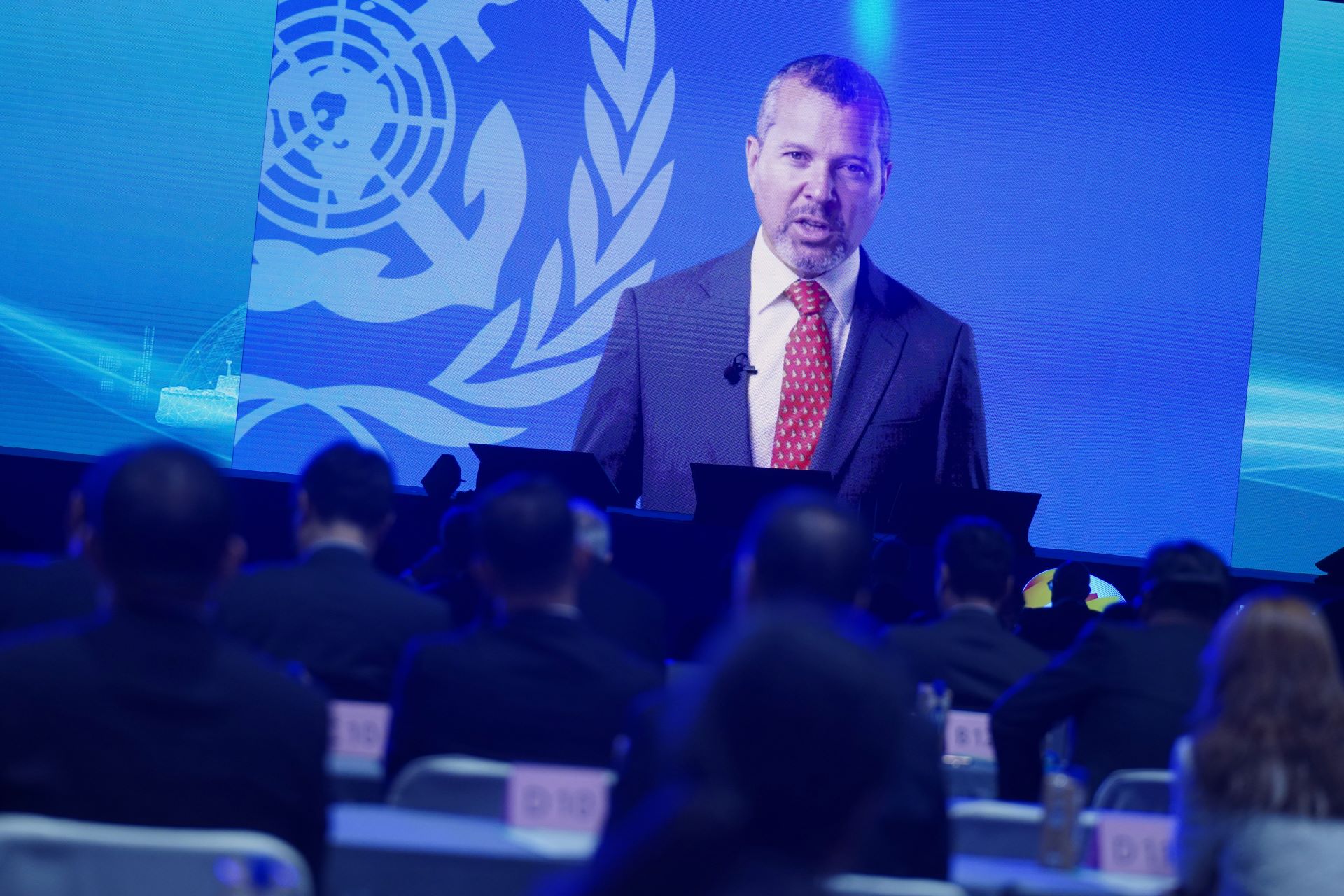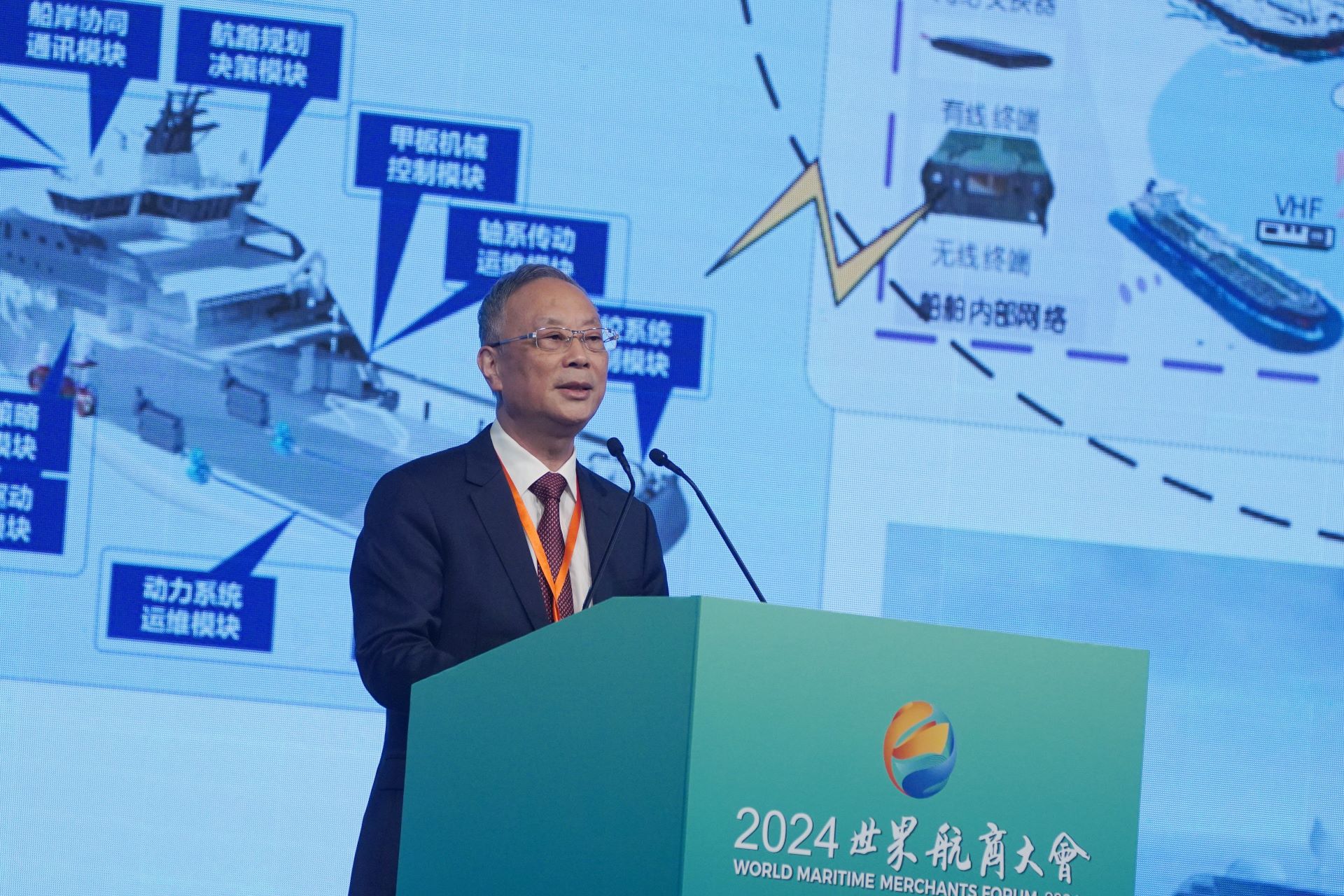
Industry insiders urged the global shipping community to embrace new technologies to move toward a smarter and greener future, as the shipping industry is facing both challenges and opportunities.
Speaking at the World Maritime Merchants Forum 2024 on Monday, they emphasized the need for enhanced international collaboration on technology, calling for the use of big data and artificial intelligence as tools to facilitate the industry’s energy transition.
A set of ESG (environmental, social, and governance) evaluation standards was released at the forum, which, using advanced models like Shipping GPT, will help shipping companies, investors, and regulators assess ESG performance and promote sustainable practices across the sector.
The forum also saw the establishment of the Smart Carbon Reduction Consortium, aimed at speeding up the development and application of technologies that can help reduce carbon emissions in shipping.
ALSO READ: HK shines as maritime ‘superconnector’ amid shipping transformation
Secretary-General of the International Maritime Organization Arsenio Antonio Dominguez Velasco emphasized in a recorded speech that the maritime sector is navigating to a greener future. In this process, “the use of digital tools should be supported to optimize operations, reduce fuel consumption, and monitor emissions in real time,” he said.
Yan Xinping, an academician from the Chinese Academy of Engineering, noted that while current geopolitical tensions and changing trade patterns present challenges for the global shipping industry, the digital transformation offers opportunities.

“The future of the industry will depend on technologies like AI and blockchain,” he said. By combining innovative information technologies with new energy and materials, the shipping sector can create new business models. These advancements will help connect all factors involved in the maritime sector such as ships, cargo, and ports, improving operation efficiency and ensuring data security, he added.
Ren Lixin, vice-president of China National Petroleum Corporation, agreed, saying international shipping professionals should deepen exchanges on energy technology and results sharing. He called for partnerships between industry, academia, and research institutions to support energy transition.
READ MORE: HK Chamber of Shipping launched to boost city's status as global hub
Last July, the International Maritime Organization advanced its net-zero emissions target for shipping from the year 2100 to 2050.

A report released in September by Norway-based maritime organization DNV indicated it is necessary to prioritize energy-efficient technologies to cut emissions in shipping before carbon-neutral fuels become viable and sufficient. For instance, using shore power, which can replace fossil fuels to supply electricity while vessels are docked, could potentially reduce energy consumption by 7 percent.
At the Hong Kong forum, Emanuele Grimaldi, chairman of International Chamber of Shipping, noted that it is important to ensure that economically viable options are available for shipowners when pursuing sustainability. In this process, smart machines can help reduce fuel consumption and emissions, he said.


